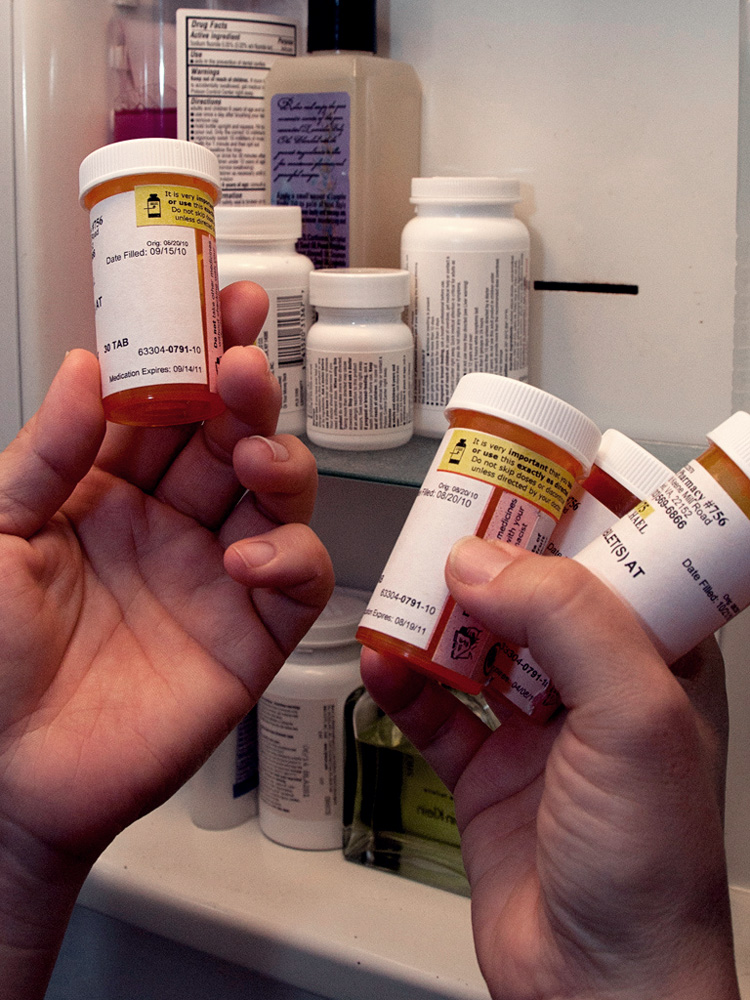“Heroin addict” sounds pretty scary to the average parent. US culture inundates us with the idea that heroin is the ultimate bad drug that only the most lost and depraved souls resort to.

As far as narcotic threats to your children are concerned though, this is an incomplete picture of opiate addiction. Among heroin addicts entering treatment since 2000, three out of four people confirm that their first opiate was a prescription. This means that since the opioid epidemic began in the early 2000s, most heroin addiction problems don’t actually start with street drugs.
If your child is prescribed an opioid painkiller by a doctor, it’s important to keep track of how much medication is being used. If there are any signs of abuse or addiction, be sure to get help immediately. Because while prescription opioids can be helpful for certain medical conditions, they can also be deadly when misused.
Does your child need a heroin addiction treatment program? Find out by calling us today at *DM_DirectNumber format=period linked=true*.
How It Starts
The graduation to heroin often has roots in the family home when teens and young adults are introduced to the drug through unwitting older relatives. You know the proverbial “liquor cabinet” that keeps kids away from alcohol? Your medicine cabinet is its narcotic equivalent. “Painkiller” is a code word for opiates. They are often prescribed for major surgeries and chronic pain. Think how often people forget to throw away old medications. Any of these sound familiar?
-
Vicodin
Acetaminophen and hydrocodone. Pain reliever.
-
Oxycontin
“Around-the-clock” relief effects for chronic pain.
-
Percocet
Acetaminophen and oxycodone. Pain reliever.
-
Dilaudid
Hydromorphone. Used for chronic pain.
-
Percodan
Aspirin and oxycodone. Pain reliever.
-
Demerol
Meperidine hydrochloride. Pain reliever.

These common medications are actually synthetic opiates. Aside from added contaminates, there’s no chemical difference between the opiates found in medical prescriptions and street heroin. Your bathroom cabinet may contain legal prescriptions that can easily act as a gateway to serious opiate abuse. Remember that bottle of Vicodin you got for a surgery but never threw away? Does grandma squirrel away her chronic pain pills for a rainy day? Such unmonitored Rx prescriptions are a common way that young adults start getting high without even having to find a dealer.
Graduating to Heroin
Heroin addiction is a problem that is on the rise in the United States. It has been estimated that over two million Americans are addicted to heroin, and this number is only increasing. What is even more alarming is the fact that many people who start using heroin graduated from abusing prescription painkillers.
Yes, prescription drugs can be a gateway to heroin use. Remember that these “family prescription” gateways deplete quickly. Unfortunately, opiates are extremely habit-forming and one bottle may be all your son or daughter needs to develop dependency. They will look for ways to get more. If they can’t get it, they’ll resort to a drug that’s cheaper and far easier to obtain: heroin.
Clearly, the problem begins with the opiates. Although many states are beginning to enact restrictions on first-time opiate prescriptions, they are still largely unregulated.
A typical 30-day supply of opiates is more than enough to whet a person’s taste. This is when it becomes seriously life-threatening. Opiate users need a constant supply of the drug to feel normal, and as tolerance increases, overdose becomes an ever-looming threat.
It’s Easy to Overdose
Prescribed opiates are insidious. They are handed out under the assumptions that:
- The prescribed person is actually the user
- The user is actually taking the dosage as prescribed
- Prescribed drugs are safe to take
Of course, it’s common for people not to meet these criteria. Medical professionals don’t monitor drug use outside of hospital settings, so it’s easy to develop an addiction. This is when overdose becomes a player.
Young adults in particular are at risk for OD. It is very easy to decide that a better high is worth the risk when their youth gently whispers, “You’re invincible. Do it!” Mix in the switch to street opiates like heroin, and all bets are off.
Get Professional Help For Prescription Drug or Heroin Addiction
Addiction is a dangerous trap. The longer you avoid getting help, the worse the situation becomes. If you think your child may be addicted to prescription drugs or heroin, call our addiction specialists for a free assessment: *DM_DirectNumber format=period linked=true*.

